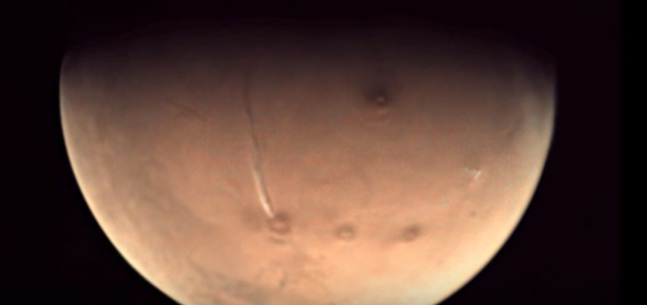NASA's asteroid camera, while carrying out routine checks for dangerous asteroids, has sighted China's Tianwen-1 Mars spacecraft zooming away from earth. Launched on Thursday, the Chinese space vehicle began a seven-month journey to Mars.
The spacecraft contains a rover, an orbiter, and a lander, all packed together. If it reaches Mars, it will become China's first successful mission to the Red Planet.
Looking for Hazardous Space Objects

The views were captured by a program run by NASA's Planetary Defense Coordination Office, which scans huge swaths of the sky for space rocks in order to gather enough observations for astronomers to map each object's path in case one may come a little too close for comfort.
NASA's Planetary Defense Coordination Office took to Twitter and wrote: "During routine survey operations for hazardous #asteroids for @NASA's #PlanetaryDefense Coordination Office, the @fallingstarIfa ATLAS-MLO telescope spotted China's Tianwen-1 on its way to #Mars. Bon Voyage Tianwen-1!"
According to the space.com, the new animation of Tianwen-1 speeding away from Earth came from a facility at Mauna Loa on Hawaii Island that is one of a pair of Hawaiian observatories that make up the Asteroid Terrestrial-impact Last Alert System, or ATLAS.
Identifying New Celestial Objects
The ATLAS observatories regularly identify new celestial objects, like the comet of the same name that dazzled skywatchers earlier this year before fizzling out. But in this case, it was no celestial object that streaked across ATLAS's view.
Instead, it was the second in a trio of highly anticipated spacecraft launching to Mars during this summer's three-week window of orbital alignment. China hopes that the Tianwen-1 mission's three robotic components send home a bonanza of scientific data about Mars.
(With inputs from agencies)








